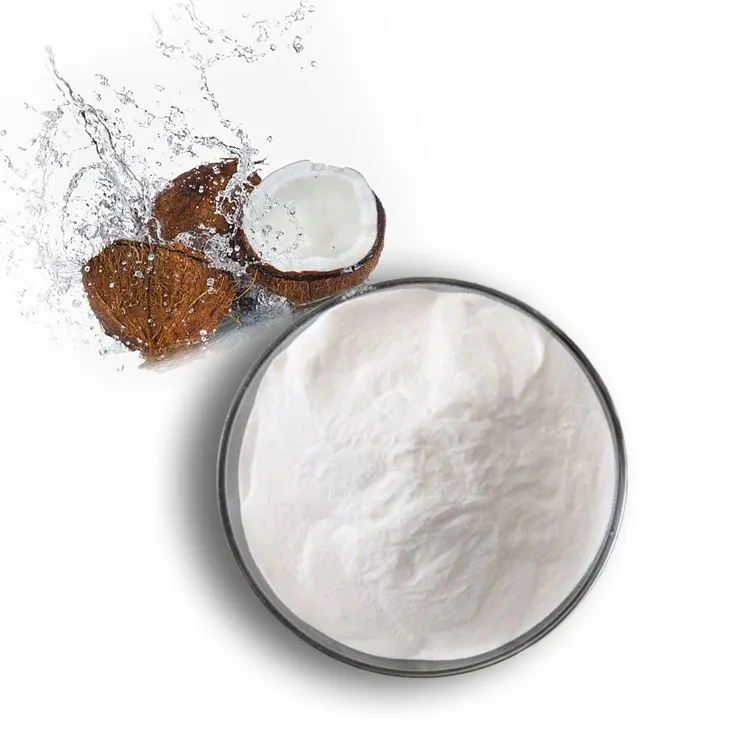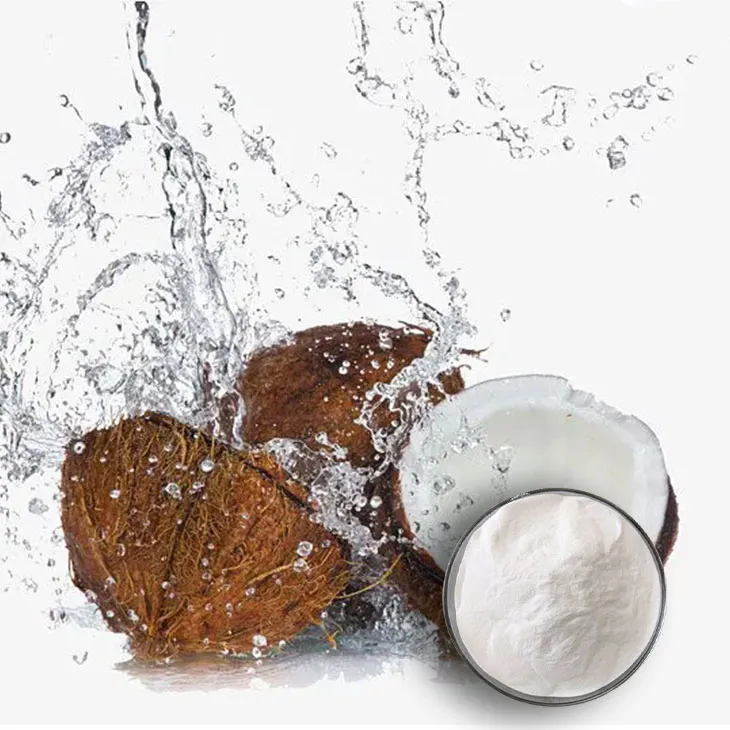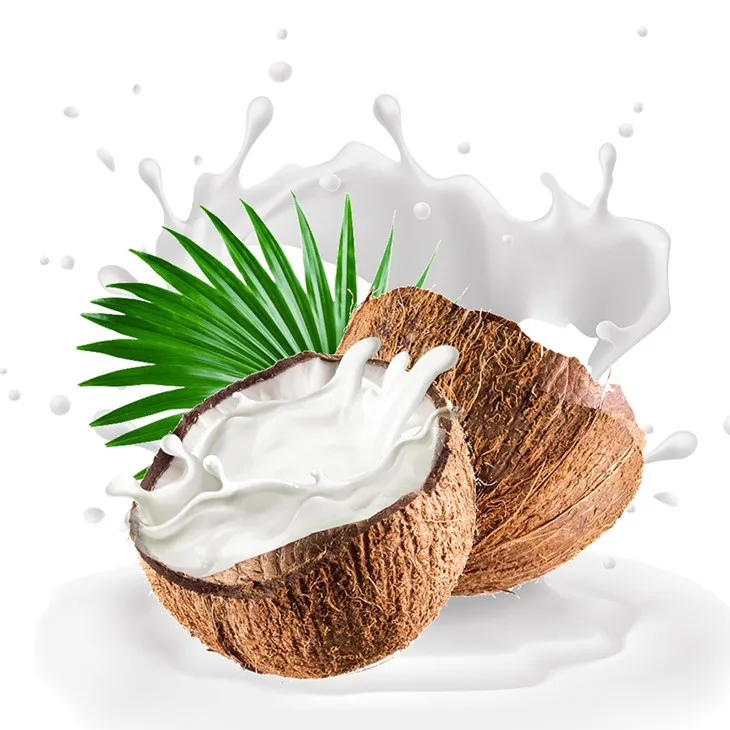- 0086-571-85302990
- sales@greenskybio.com
Extract coconut water powder by steam distillation.
2024-12-01

1. Introduction to Coconut Water
Coconut water is a natural, refreshing liquid found inside young coconuts. It is not only a delicious beverage but also a rich source of various nutrients. Coconut water contains electrolytes such as potassium, sodium, and magnesium, which are essential for maintaining the body's fluid balance. It also has vitamins like vitamin C, which play a role in immune function, and some B - vitamins involved in energy metabolism.
The importance of coconut water extends beyond its nutritional value. In many tropical regions, it has been a traditional drink for centuries, often used to quench thirst, especially in hot and humid climates. Additionally, due to its natural and healthy image, it has gained popularity worldwide in recent years as a sports drink alternative, appealing to health - conscious consumers.

2. The Basics of Steam Distillation
2.1 Equipment Used
Steam distillation is a separation process that requires specific equipment. The main components include a distillation flask, a condenser, and a receiving flask. The distillation flask is where the coconut water is initially placed. It is typically made of heat - resistant glass or metal. A heating source, such as a Bunsen burner or an electric heater, is used to heat the flask.
The condenser is an important part of the setup. It is usually a long, coiled tube surrounded by a cooling jacket. As the steam from the heated coconut water rises and enters the condenser, the cooling water flowing through the jacket causes the steam to condense back into a liquid state. The receiving flask is placed at the end of the condenser to collect the distilled product.
2.2 Techniques Involved
When starting the steam distillation process for coconut water, the first step is to pour the fresh coconut water into the distillation flask. The amount of coconut water should be carefully measured to ensure efficient distillation. Then, the heating source is turned on, and the coconut water is gradually heated.
As the temperature rises, the water in the coconut water begins to vaporize. The steam carries with it the volatile components of the coconut water. It is important to control the heating rate to avoid over - boiling or splashing. A slow and steady heating process is usually preferred. The steam then travels through the condenser, where it is cooled and converted back into a liquid. This liquid contains the concentrated components of the coconut water, which is the first step towards obtaining Coconut Water Powder.

3. Extracting Coconut Water Powder
After the initial steam distillation process, the collected liquid still contains a significant amount of water. To obtain Coconut Water Powder, further steps are required. One common method is evaporation. The liquid is placed in a shallow dish or a special evaporation apparatus.
The liquid is then heated gently under controlled conditions. As the water evaporates, the concentration of the coconut water components increases. This process needs to be carefully monitored to ensure that the desired consistency is achieved. Once most of the water has evaporated, what remains is a thick, viscous substance. This substance can be further dried to form a powder. This drying can be done in a low - humidity environment or using a specialized drying equipment such as a spray dryer or a freeze - dryer.

4. Market Potential of Coconut Water Powder
4.1 Health and Wellness Industry
The coconut water powder obtained through steam distillation has great potential in the health and wellness industry. Given its concentrated form, it can be easily incorporated into dietary supplements. For example, it can be added to multivitamin tablets or energy - boosting supplements. Health - conscious consumers are increasingly looking for natural and nutrient - rich products, and coconut water powder fits this bill perfectly.
It can also be used in the production of functional foods. For instance, it can be added to energy bars or smoothies mixes. The powder form allows for easy storage and transportation, making it a convenient option for food manufacturers. Moreover, the natural electrolytes in coconut water powder make it an ideal ingredient for sports nutrition products, helping athletes to rehydrate and replenish their energy levels.
4.2 Cosmetic and Skincare Industry
Coconut water powder has properties that are beneficial for the cosmetic and skincare industry. It contains antioxidants that can help in protecting the skin from free - radical damage. These antioxidants can be harnessed in the production of anti - aging creams, serums, and lotions.
The moisturizing properties of coconut water powder are also valuable. It can be used in moisturizers to hydrate the skin, leaving it soft and supple. Additionally, it can be incorporated into haircare products, such as shampoos and conditioners, to add shine and improve the overall health of the hair.
5. Ensuring High - Quality and Sustainable Production
5.1 Quality Control
To ensure high - quality coconut water powder production, strict quality control measures must be in place. This starts with the sourcing of coconuts. Only fresh, high - quality coconuts should be used. During the steam distillation process, the temperature, pressure, and time need to be carefully monitored and controlled.
Testing of the final product is also crucial. The powder should be analyzed for its nutrient content, purity, and microbiological safety. Any contaminants or deviations from the expected quality standards should be detected and addressed promptly.
5.2 Sustainability Considerations
In terms of sustainability, the production of coconut water powder by steam distillation should be carried out in an environmentally friendly manner. This includes sustainable coconut farming practices. Coconut farmers should be encouraged to use organic fertilizers and pest control methods to reduce the environmental impact.
The energy consumption during the steam distillation and drying processes should also be optimized. Using energy - efficient equipment and renewable energy sources, such as solar power, can help to reduce the carbon footprint of the production process. Additionally, waste management should be considered. For example, any by - products from the production process should be recycled or reused whenever possible.
6. Conclusion
The extraction of coconut water powder by steam distillation is a complex but promising process. It offers a way to harness the valuable properties of coconut water in a more concentrated and versatile form. With its potential in various industries such as health, wellness, cosmetics, and skincare, and the ability to ensure high - quality and sustainable production, coconut water powder obtained through steam distillation has a bright future in the global market.
FAQ:
What is coconut water?
Coconut water is the clear liquid found inside young, green coconuts. It is rich in nutrients such as electrolytes (including potassium, sodium, and magnesium), vitamins (like vitamin C), and amino acids. It has a sweet and refreshing taste and is often consumed as a natural beverage for its hydrating properties.
Why is steam distillation used to extract coconut water powder?
Steam distillation is used for several reasons. Firstly, it can help in separating the volatile components of coconut water while leaving behind unwanted substances. It is a relatively gentle method that can preserve the important nutrients and flavors present in the coconut water. Also, it is a well - established technique in the extraction of various substances, which makes it a reliable choice for obtaining coconut water powder.
What equipment is typically used in the steam distillation process for coconut water powder extraction?
The basic equipment includes a distillation flask, which is where the coconut water is placed initially. A condenser is also essential, which cools the steam and converts it back into liquid. A heating source, such as a Bunsen burner or an electric heater, is needed to generate the steam. Additionally, there are usually collection vessels to gather the distilled coconut water and other accessories like thermometers to monitor the temperature during the process.
What are the main challenges in extracting coconut water powder by steam distillation?
One of the main challenges is preventing the degradation of the nutrients in coconut water during the distillation process. High temperatures and long exposure times can cause the loss of some vitamins and amino acids. Another challenge is ensuring complete separation of the water from other components without contaminating the final product. Also, the process needs to be energy - efficient as steam distillation can be energy - consuming.
How does the coconut water powder obtained by steam distillation contribute to related sectors?
The coconut water powder can be used in the food and beverage industry. It can be added to various products like sports drinks, smoothies, and energy bars as a natural source of electrolytes and nutrients. In the cosmetic industry, it can be incorporated into skincare products for its hydrating and antioxidant properties. This helps in expanding the product range in these sectors and can attract consumers who are interested in natural and healthy ingredients.
Related literature
- Steam Distillation: Principles and Applications in Food Processing"
- "Coconut Water: Composition, Nutritional Value, and Health Benefits"
- "Extraction Technologies for Coconut - Based Products"
- ▶ Hesperidin
- ▶ citrus bioflavonoids
- ▶ plant extract
- ▶ lycopene
- ▶ Diosmin
- ▶ Grape seed extract
- ▶ Sea buckthorn Juice Powder
- ▶ Beetroot powder
- ▶ Hops Extract
- ▶ Artichoke Extract
- ▶ Reishi mushroom extract
- ▶ Astaxanthin
- ▶ Green Tea Extract
- ▶ Curcumin Extract
- ▶ Horse Chestnut Extract
- ▶ Other Problems
- ▶ Boswellia Serrata Extract
- ▶ Resveratrol Extract
- ▶ Marigold Extract
- ▶ Grape Leaf Extract
- ▶ blog3
- ▶ blog4
-
The best lemon juice powder in nature.
2024-12-01
-
Organic Vitamin K2 Powder Suppliers
2024-12-01
-
Bulk purchase of L - tyrosine.
2024-12-01
-
Vitamin K2 Manufacturers
2024-12-01
-
100% Pure Natural Rutin.
2024-12-01
-
Chinese Citrus Bioflavonoid Suppliers.
2024-12-01
-
Kidney Bean Extract
2024-12-01
-
Green Tea Extract
2024-12-01
-
Acerola Juice Powder
2024-12-01
-
Propolis Extract Powder
2024-12-01
-
Sugarcane Extract
2024-12-01
-
Curcumin
2024-12-01
-
Beetroot Powder
2024-12-01
-
Elderberry Extract
2024-12-01
-
Nettle leaf extract
2024-12-01
-
Withania Somnifera Extract
2024-12-01





















